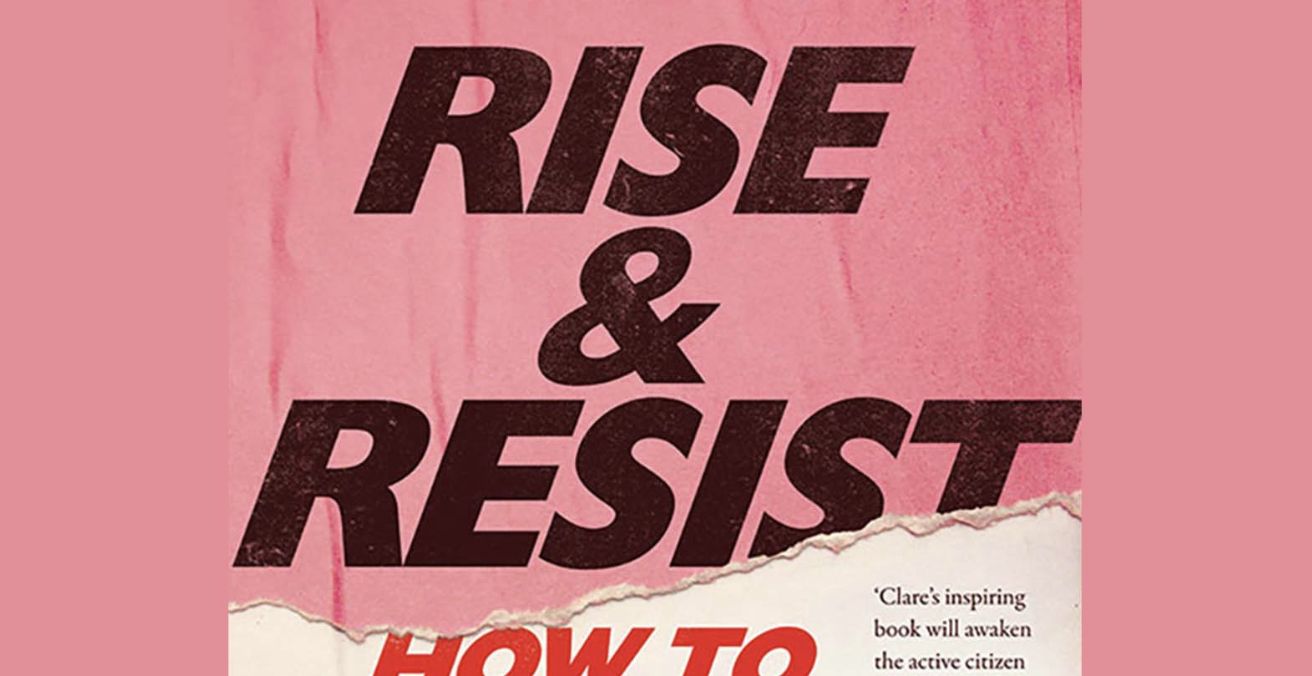Reading Room: Rise and Resist

In Rise and Resist, Clare Press takes a look at the developments in 21st-century democracy. She explores the new counterculture and the social movements that are utilising increasingly creative strategies to achieve social and environmental justice to build a more sustainable future.
Does the coming of Donald Trump and Jair Bolsonaro, and the long goodbye of Angela Merkel, mean the democracies of the world are all sliding right? Has representative governance lost its way in a grandiose and decadent decline?
Put simply, no.
We are, however, in the middle of a global phase transition, a systemic evolution in the ways of democracy and the narratives we use to describe the purpose and future of governance. Few disagree that democracy is undergoing a crisis, that “strong man” politics is back, that the certainty of Trump’s position on any given day or hour is more alluring than the equivocation of twenty other career politicians using their vast rhetorical expertise to avoid a “gotcha” moment.
Yet this misses the point. To hail the end of democracy has become akin to hailing the decline of Western Civilisation. These narratives have become fused.
Enter Clare Press with her book Rise and Resist. Clare offers a new narrative, a counter-narrative to the end of democracy. Based on interviews with activists and founders of social movements from around the world, Rise and Resist is a series of case studies of how democracy is evolving.
Often, we focus too much on the increasing soft power of non-democratic nations, and on the various influence and information operations that have so meddled in recent democratic elections. But to look too much at the actions of non-democratic nations is to miss what is going on inside democracies, to miss what is going on inside non-democratic nations as well.
Clare looks at how democracy is being done differently. She weaves together the #MeToo movement and craftivism as a form of protest and shows why this is fundamentally important to the practices of democratic governance. The book is written as a call to action for activists, but I suggest you read it with an eye to how today’s disenfranchised youth are cutting their very politically engaged teeth.
An upper-middle-class student in Sydney will likely have more in common with an upper-middle-class student in Mexico City than the person who sits next to them in their university tutorial. In the same way that people are grouped by the Spotify playlists they follow, the Facebook groups they like and the online bubbles of information they interact within – the way younger generations do democracy is the same. Borderless but issue specific. They may not write letters to the editor, but they don’t read them either. The letters they read and write are elsewhere.
So, what are the global consequences?
Often the rise of micro-parties and issue-specific political movements are conflated with the decline of democracy, particularly in countries with a long history of stable multi-party or two-party systems. This glosses over what the specific issues are and how these issues often have systemic economic and social consequences at a national and a global level. Even something as specific as the movement to ban single-use plastic has fundamental implications for the global petrochemical industry and the jute industry in Bangladesh. Democracy, done differently, has a world-wide impact.
For years there has been this recurring narrative regarding the disenfranchisement of youth with politics, with international relations, with understanding and influencing the distribution of power. Clare Press presents the counter-narrative.
Yes, the Global Financial Crisis caused a decadal increase in anti-immigration positions as parties opted for identity politics to explain economic instability. The relevance to democracy? Enter social enterprise. All those unemployed youth that want to manifest political change but were disenfranchised with the current establishment, they’ve started businesses and social movements tailored to produce social good.
Rise and Resist shows how social entrepreneurs are not so much disenfranchised with politics, but simply going around it. These people are actively catalysing local, national and global change. If you look closely, these social movements are being co-opted by the narratives and language of the start-up world, not the narratives and language of formal politics.
To lament the decline of democracy is to look the wrong way because one day these same social entrepreneurs will return to the establishment, they will become the establishment. Their methods of doing democracy will transform representative governance the world over. Clare Press shows that if you want to see where democracy is alive and thriving, you need to look in the right places. Don’t look at the dead wood, look where democracy is being done differently.
This has implications for state-to-state relations. Demographically, it’s inevitable that elections have to incorporate borderless communication systems, borderless social movements and borderless social enterprises. If the majority of citizens back a single-issue movement that originated in another country, that’s not foreign influence or the decline of democracy, that’s the changing face of democratic governance. Rather than disagree with it, rather than lament the decline of democracy, perhaps you ought to read Rise and Resist and engage with democracy when and where it happens.
Clare Press, Rise and Resist (Melbourne: Melbourne University Press, 2018)
Thom Dixon is vice president for the Australian Institute of International Affairs NSW and research fellow with Remi AI.
This article is published under a Creative Commons License and may be republished with attribution.





